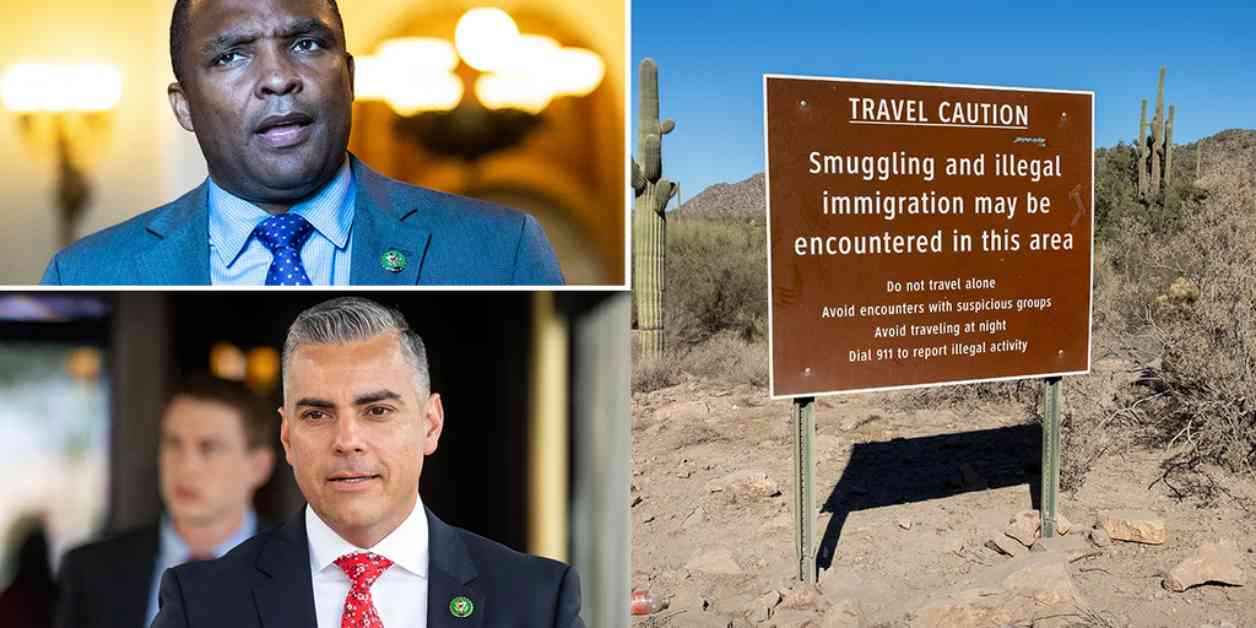Amidst the ongoing battle against drug smuggling at ports of entry along the southern border, a bipartisan effort in the House of Representatives is gaining momentum. H.R. 1924, known as the Border Enforcement, Security, and Trade (BEST) Facilitation Act, aims to bolster resources for U.S. Customs and Border Protection agents by introducing new roles and policies. The proposed legislation would mandate the hiring of image technicians and supervisors at ports to enhance cargo scan scrutiny, a move anticipated to expedite processing times and enhance drug interception, particularly of substances like fentanyl.
The face behind this initiative is Rep. Juan Ciscomani, a Republican from Arizona, who underscores the critical need for stricter scanning protocols. Fentanyl, a potent synthetic opioid, poses a significant threat due to its minuscule size and ease of concealment. The legislation directly responds to feedback from officials on the frontlines, emphasizing the importance of proactive measures to fortify port security and combat drug trafficking effectively.
The Impact of Enhanced Scanning Protocols
One of the primary challenges faced by authorities is the evolving tactics employed by drug cartels to smuggle illicit substances across the border. From dismantling and rebuilding vehicles to conceal fentanyl to concealing narcotics within various goods, traffickers constantly adapt to evade detection. By instituting specialized scanning roles, the legislation aims to disrupt these tactics and bolster security measures at ports of entry.
Rep. Ciscomani stresses the significance of preventing the illegal flow of drugs while streamlining the entry of legitimate goods. The proposed measures not only serve to safeguard communities from the devastating effects of drug abuse but also create a conducive environment for lawful trade. The potential reduction in wait times could alleviate strain on both agents and travelers, fostering a more efficient and secure border crossing process.
Uniting Across Party Lines for Public Safety
The urgency of addressing drug trafficking transcends political affiliations, as evidenced by the bipartisan support garnered by H.R. 1924. Rep. Don Davis, a Democrat from North Carolina and co-sponsor of the legislation, echoes the sentiment of prioritizing public safety over partisan divides. The impact of the fentanyl crisis hits close to home for many families, underscoring the critical need for swift and unified action.
The proposed legislation, now under review by the House Homeland Security Committee, aligns with broader efforts to tackle the border crisis. Recent initiatives by the Trump administration, including heightened enforcement measures and decreased illegal border crossings, have sparked both praise and criticism across party lines. The evolving landscape underscores the complexity of border security issues and the ongoing quest for effective solutions.
In the midst of heated debates and divergent viewpoints on Capitol Hill, glimpses of agreement and collaboration emerge. Arizona lawmakers from both parties, alongside Democratic Attorney General Kris Mayes, are rallying behind a state bill that empowers local authorities to counter cartel activities. This unified stance reflects a shared commitment to combating illicit drug trafficking through innovative strategies and decisive action.
As the conversation surrounding border security continues to evolve, the passage of H.R. 1924 could mark a significant step towards enhancing port resources, curbing drug smuggling, and fortifying national security. The collective efforts of legislators, law enforcement agencies, and community stakeholders underscore the shared goal of safeguarding communities and upholding the integrity of our borders. The journey towards a safer, more secure border demands ongoing collaboration, innovation, and unwavering dedication to public safety.


